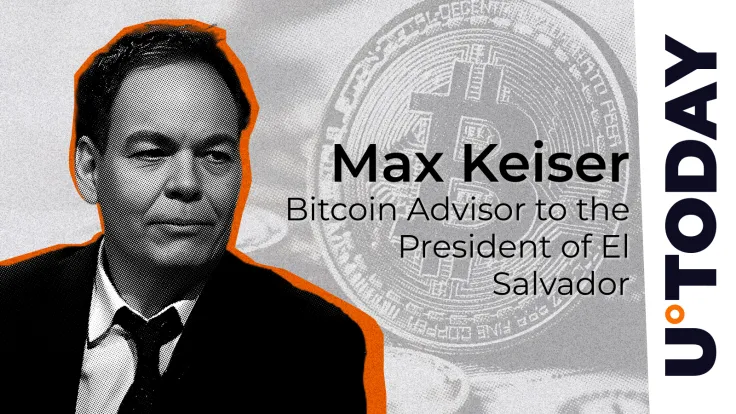
Disclaimer: The opinions expressed by our writers are their own and do not represent the views of U.Today. The financial and market information provided on U.Today is intended for informational purposes only. U.Today is not liable for any financial losses incurred while trading cryptocurrencies. Conduct your own research by contacting financial experts before making any investment decisions. We believe that all content is accurate as of the date of publication, but certain offers mentioned may no longer be available.
Vocal Bitcoin maximalist Max Keiser has shared what ROI (return on investment) he has seen on his BTC investments since the times when the flagship cryptocurrency traded as low as just $1.
Keiser, who is also the advisor on all things to do with Bitcoin to President of El Salvador Nayib Bukele, has reminded the BTC community that he has been purchasing digital gold since 2011, when Bitcoin was worth just $1. Basically, Keiser began buying BTC right after its mysterious creator, Satoshi Nakamoto, disappeared from public view.
By now, he proudly stated, his ROI on the Bitcoin he holds has soared to 6,800,000%.
Following the basic rule of every hodler, Keiser has never revealed his BTC holdings, which are likely to be massive since he has been stocking BTC over the past 13 years.
He also remains a hardcore Bitcoin maxi, as he frequently slams altcoins, including Ethereum, as s-coins. In particular, Keiser criticizes XRP, ADA and SOL; they are mentioned in his tweets most frequently.
In a tweet published today, Keiser poured criticism on Cardano’s native coin, ADA: “Cardano/ ADA will continue trending to zero against Bitcoin just like all s-coins.”
Approximately a week ago, Keiser published a tweet in which he shared his expectation that Bitcoin is likely to begin trading at the $220,000 level “very soon.” The influencer was led to believe so because Bitcoin’s rival in the material world – gold – surged to a new all-time high for the first time in the past four years and reached $2,713.88 per ounce. Gold’s previous historic price peak was reached in 2020, during the pandemic.


 Dan Burgin
Dan Burgin Vladislav Sopov
Vladislav Sopov